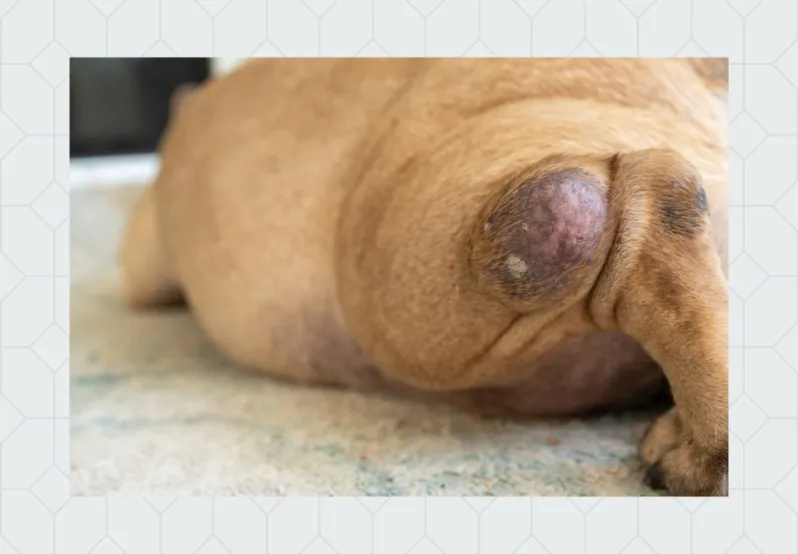Characterization and Prognostic Evaluation of Infiltrative Immune Cells in Canine Soft Tissue Sarcomas
The goal of the study is to assess for infiltration of immune cells into tumor samples collected, as well as to monitor for disease progression after surgery. The enrollment will be limited to dogs cytologically diagnosed with soft tissue sarcomas that are at least two centimeters in diameter, undergoing a marginal resection.
Marginal excision of the mass will be performed in all dogs as clinically indicated, following the standards of care. Additional testing, specifically immunohistochemistry, of the tumor sample once removed, will be performed to identify immune cells within the sample. Routine staging post-operatively, as outlined below, will be performed until local recurrence and metastatic disease develop, 24 months of follow-up is reached, or death occurs. Dogs will undergo chest radiographs with sedation given as needed at 3, 6, 9, 12, 18, and 24 months. If a lymph node is suspected to have metastatic disease or if local recurrence is suspected, a fine needle aspirate of the lymph node or recurrent mass, respectively, will be performed.

Client Compensation:
The study covers the costs associated with the histopathology of the tumor once removed. Additionally, the study covers the costs of recheck examinations, chest radiographs with associated sedation if needed, and fine needle aspiration of suspected metastatic lymph nodes and local recurrence at 3, 6, 9, 12, 18, and 24 months post-operatively. The study does not cover the cost of preoperative evaluation, preoperative diagnostics, surgery, and general anesthesia for tumor removal beyond the histopathology charge, hospitalization, post-operative care, diagnostics beyond those outlined above, and additional treatment (such as additional surgery, chemotherapy, and radiation therapy).
Potential Medical Benefits:
All patients enrolled in this study will receive current standard of care treatment for a dog undergoing a marginal excision of a soft tissue sarcoma. Dogs participating in the study may not directly benefit from participating; however, the potential information gained from the study may advance diagnostics and treatments of dogs with soft tissue sarcomas in the future.
Potential Medical Risks:
The risks of participating in the study are not beyond those associated with standard of care. General surgical complications for marginal excision of a soft tissue sarcoma and general anesthesia include aspiration pneumonia, drug reactions, hypotension, cardiopulmonary arrest, bleeding, infection, local recurrence, development of metastatic disease, opening of the incision (dehiscence), and need for bandaging. It is possible that enrolled dogs may experience unexpected side effects. It is possible that enrolled dogs' condition may not improve or may worsen. General risks of sedation include systemic reactions such as aspiration pneumonia, adverse drug reactions, hypotension, and cardiopulmonary arrest. Risks of a fine needle aspirate include bleeding, swelling, infection, and nondiagnostic sampling.
What qualifies my pet for enrollment?
Inclusion Criteria:
Tumor consistent with soft tissue sarcoma on cytologic evaluation
Tumor dimension of at least 2 cm
Marginal excision of mass performed
Submission of mass for histopathologic interpretation
Exclusion Criteria:
Treatment with steroid, non-steroidal anti-inflammatory, or other immunomodulatory drug within 30 days of surgery
Surgery for recurrence or revision of previous definitive surgery
Surgery with overt gross disease present following resection of tumor
- Concurrent diagnosed endocrinopathies
Diagnosis/Condition Being Studied: Soft tissue sarcomas
Intervention to Be Studied: No direct intervention will be performed. Samples will be collected from tumors after surgical removal.
PRE-SCREENING QUESTIONAIRE
If you believe your pet may be eligible for this trial, please complete a pre-screening questionnaire.